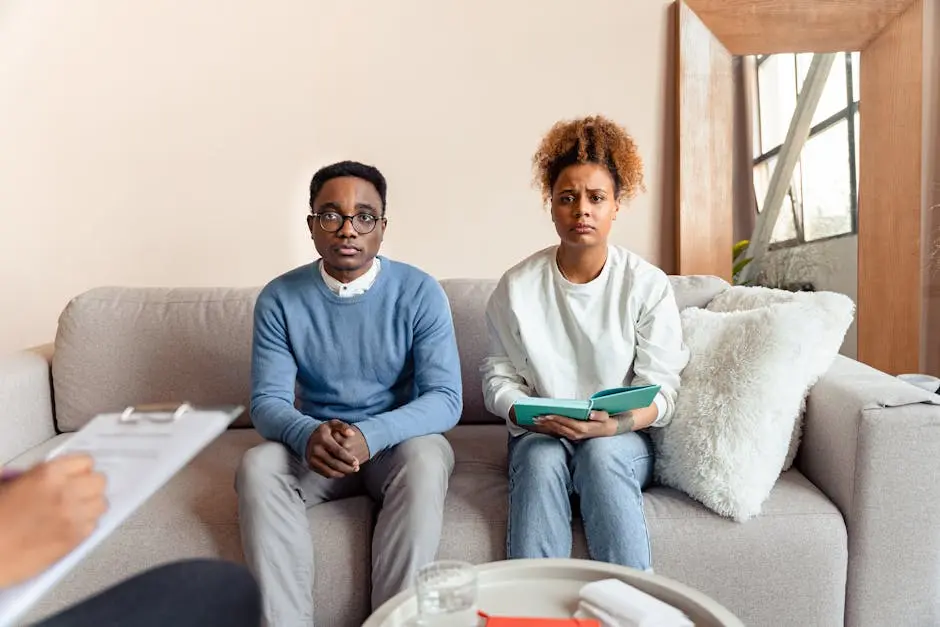In any relationship, challenges are bound to arise. While navigating these hurdles can sometimes strengthen your bond, there are moments when external support becomes essential. Couples counseling is not just for those in turmoil; it’s a proactive step for enhancing your connection and communication. Here are some signs that might indicate the need for professional guidance.
1. Communication Has Become Challenging
If conversations with your partner often lead to misunderstandings or escalate into arguments, it might be time to consider counseling. A neutral third party can teach effective communication skills, helping you to express your thoughts and feelings constructively.
Effective communication is foundational to any healthy relationship. However, over time, even the best communicators can hit a roadblock. Whether it’s due to stress, life changes, or simply drifting apart, the way you and your partner talk—or don’t talk—can create rifts if not addressed. Couples counseling offers a structured environment where you can learn to navigate past conversational pitfalls, explore the root causes of communication breakdowns, and ultimately discover more effective ways to engage with one another.
2. Trust Issues Are Affecting Your Relationship
Trust is the foundation of any relationship. If trust has been broken or consistently questioned, resolving these issues independently may prove difficult. Couples counseling can provide a safe space to rebuild trust and address any underlying concerns.
Rebuilding trust can be a daunting task. It requires patience, empathy, and open dialogue. In counseling sessions, both partners are encouraged to express their feelings and fears, giving each other space to be vulnerable and honest. This process not only aims to repair the fractures in trust but also strengthens the emotional intimacy that might have been eroded over time.
3. Recurring Conflicts with No Resolution
When the same issues keep causing friction, and resolutions seem temporary, it might signal deeper problems. A counselor can help identify patterns and work with you to find lasting solutions.
Sometimes, it’s about more than just resolving disagreements—it’s about understanding them. Identifying what’s at the heart of these recurring disputes can help transform ongoing battles into opportunities for deeper understanding and reconciliation. Through couples counseling, you can break free from this cycle and cultivate a more peaceful, cooperative relationship.
4. Feeling Disconnected from Your Partner
Emotional distance can develop over time, leaving one or both partners feeling isolated. Strengthening your emotional connection is key to maintaining a fulfilling relationship, and counseling can guide you in rediscovering that bond.
In counseling, reconnecting with your partner means looking back at the origins of your relationship and rediscovering what brought you together in the first place. By reminiscing and sharing positive experiences, counseling can reignite the emotional sparks that may have faded. Emphasizing quality time and actively listening during sessions can also help shorten the emotional distance over time.
5. Lack of Intimacy and Affection
A decrease in physical intimacy or affection may be a symptom of larger issues within the relationship. Exploring these concerns in counseling can help address the root causes and reignite the spark.
Intimacy is often entwined with emotional connection. If either feels neglected, overall satisfaction in the relationship can significantly dip. Through counseling, partners can explore strategies to rebuild the emotional and physical bonds, ranging from setting aside uninterrupted time for one another to exploring new ways to express love and desire.
6. Differing Visions for the Future
Conflicting goals or visions for your life together can put a strain on any partnership. Couples counseling can facilitate discussions that align your paths, ensuring both partners feel heard and valued.
Whether it’s differing opinions on career paths, financial decisions, or family planning, clashing visions can prevent the unity necessary for a thriving relationship. Counseling provides tools for negotiation and compromise, ensuring that both partners work collaboratively towards a mutually satisfying future.
7. Unresolved Past Trauma
Past traumas, whether individual or shared, can affect your present relationship dynamic. Counseling offers a supportive environment to work through these issues together, promoting healing and growth.
Trauma can manifest in various ways, affecting communication, intimacy, and trust. By addressing these traumas in a safe counseling setting, couples can uncover shared strengths and grow together, ultimately turning points of pain into platforms for personal and mutual development.
8. Increased Emotional Distance
If you notice that you’re emotionally withdrawn from each other more often than not, it might be a sign that professional help is needed to bridge that gap and foster closeness.
Pinpointing the underlying causes of emotional withdrawal can be challenging; however, couples counseling enables partners to express unspoken fears and longings. As these conversations unfold in a supportive setting, emotional closeness can be lovingly rekindled.
9. Negative Communication Patterns
Criticism, contempt, defensiveness, and stonewalling can severely damage a relationship. Addressing these patterns through counseling can enhance understanding and empathy, paving the way for healthier interactions.
Negative patterns often develop gradually. When left unchecked, they can overshadow positive interactions and diminish relationship satisfaction. With the help of a counselor, couples can unearth these detrimental behaviors and replace them with practices that promote mutual respect and empathy.
10. Support During Life Transitions
Major life changes like moving, job shifts, or welcoming a child can bring unexpected stress. Counseling provides the framework for navigating these transitions together, ensuring that changes strengthen rather than weaken your bond.
Life transitions, while often exciting, bring adaptability challenges. Having a counselor aid in anticipating potential stressors can ease anxieties related to these changes. This preparation helps maintain relationship equilibrium even during life’s most unpredictable moments.





